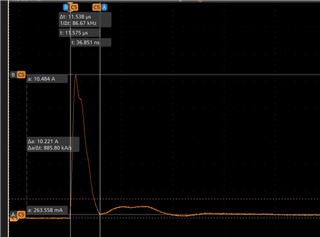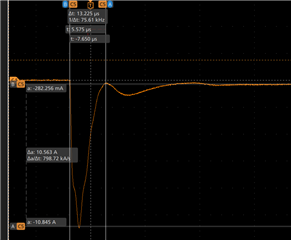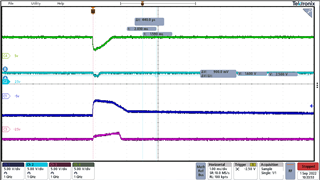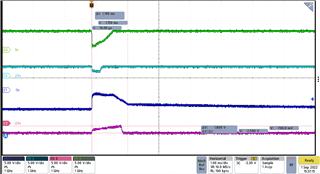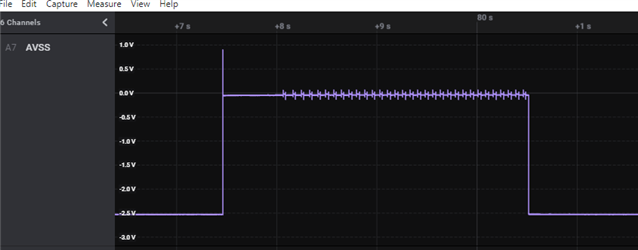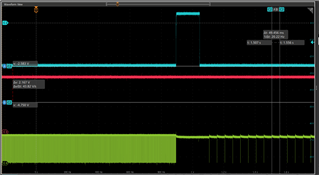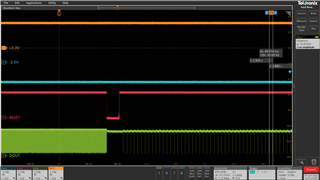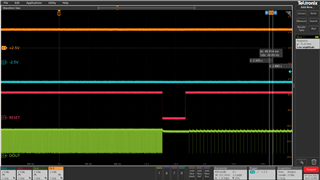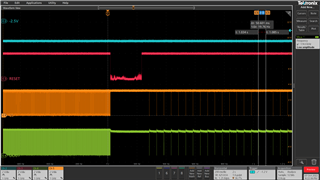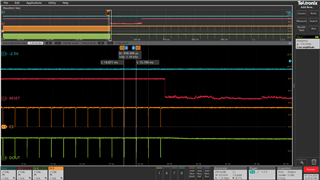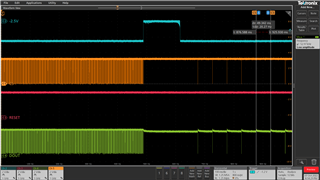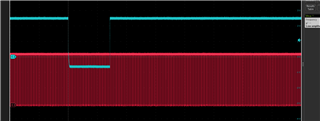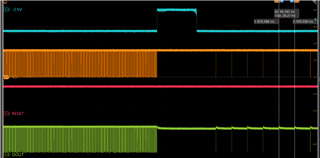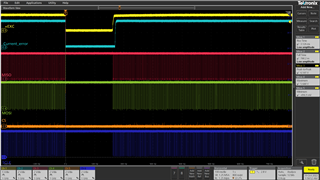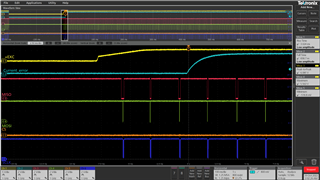Hi team
This is FAE supporting MT, Could you please help them about below question?
They use the positive and negative power supply scheme (as shown in the figure below, AVDD connected to +2.5V, AVSS to -2.5V), and then when the system is instantly connected to a large load, it will cause a short drop of +2.5V and -2.5V, and then the ADS1262 chip will not work properly.

Further verification, confirm that the problem is -2.5V, that is to say, artificial short circuit +2.5V power supply, the ADS1262 can resume work immediately after the short circuit is lifted, but when the -2.5V short circuit, the chip can not work normally. At this time, we can artificially reset the ADS1262 (20 feet down) and cannot return to normal.
In fact, in the case of normal +2.5V and -2.5V power supply, the ADS1262 is artificially reset (20 feet pulled down), and then the chip can not work normally, the phenomenon is exactly the same as the -2.5V short circuit (the DOUT pin output period will become 20Hz, as shown in the figure below).
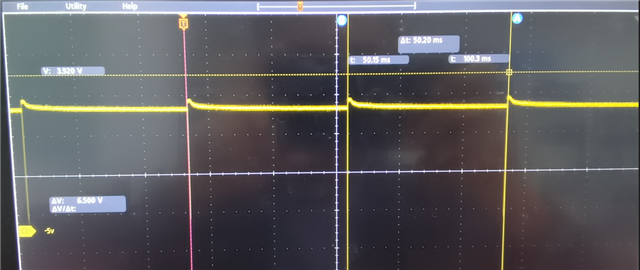
Some other AD chips have been verified, but they are all powered by a single voltage (AVSS is connected to GND), and no matter how the AVDD is short-circuited, it can automatically resume normal operation immediately after the short circuit is lifted.
The requirement for the project was that even if the AD power supply was briefly dropped or shorted, the AD would work properly without the need to reboot the system after release (previous products have been able to meet this).
The question is: why does the AD operation abnormality occur once the negative supply drops or short circuits and cannot be automatically recovered, while the positive supply drops or short circuits do not have such a problem? Why does artificial reset not only not solve the problem, but also cause the same abnormality? What are the solutions or circumventions to this problem?
I've already loop MT's engineer Chen in this discussion, due to I will be in annual leave in the next week and will limit to check emails.
Thanks for your support in advance.
Irene


